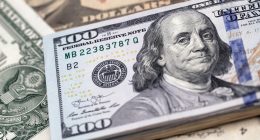
The biggest book publisher in the United States is about to get bigger. ViacomCBS has agreed to sell Simon & Schuster to Penguin Random House for more than $2 billion in a deal that will create the first megapublisher.
Penguin Random House, the largest book publisher in the United States, is owned by the German media conglomerate Bertelsmann. Adding Simon & Schuster, the third largest publisher, would create a book behemoth, a combination that could trigger antitrust concerns.
The deal includes provisions that would protect ViacomCBS in the event that a sale is squashed by authorities. Bertelsmann would pay what is known as a termination fee if the deal does not go through.
The sale of the company will profoundly reshape the publishing industry, increasingly a winner-take-all business in which the largest companies compete for brand-name authors and guaranteed best-sellers.
The book business has seen wave after wave of consolidation in the past decade, with the merger of Penguin and Random House in 2013, News Corp’s purchase of the romance publisher Harlequin, and Hachette Book Group’s acquisition of Perseus Books. This fall, Houghton Mifflin Harcourt announced it was exploring a sale of its trade publishing division, and could be an attractive target for a large publishing company like Macmillan or Hachette.
Simon & Schuster, which publishes prominent authors like Stephen King, Don DeLillo, Bob Woodward, Doris Kearns Goodwin and Walter Isaacson, had long been rumored to be the next big company to be put up for sale, and it made an attractive prize for larger publishing houses seeking to grow through acquisitions. It has a vast backlist of more than 30,000 titles.
Founded in 1924 by Richard L. Simon and M. Lincoln Schuster, the company began as a publisher of crossword puzzles. It eventually grew into a sprawling company with more than 30 publishing units, and a backlist of literary treasures like the works of Ernest Hemingway and F. Scott Fitzgerald, Henry James and Edith Wharton.
The past year has been tumultuous for Simon & Schuster. In March, it was put up for sale, just as the first wave of the coronavirus pandemic hit, destabilizing the economy and forcing bookstores to close, hobbling a major sales channel. In May, Carolyn Reidy, the company’s beloved chief executive, died suddenly, and was later replaced by Jonathan Karp, who was formerly the publisher of Simon & Schuster, the company’s flagship house among dozens of imprints. The company also faced lawsuits from the Trump family and administration, as the president tried and failed to prevent the publication of books that were critical of him, by John Bolton and Mary L. Trump.
The company had a profitable year, in spite of such hurdles. Revenue grew to $649 million through September, an 8 percent increase, and profit before tax rose by 6 percent to $115 million.
Mr. Karp and Dennis Eulau, Simon & Schuster’s chief operating officer and chief financial officer, would remain the heads of the publishing house under new ownership.
ViacomCBS received more than half a dozen inquiries from interested buyers, including financial firms and the French firm Vivendi, which holds a minority stake in Hachette through the publisher Lagardère. The top two contenders were Bertelsmann and Rupert Murdoch’s News Corp, which owns HarperCollins. News that Bertelsmann was close to a deal was reported earlier by The Financial Times.
A deal would likely draw scrutiny from antitrust regulators.
The sale will likely lead to the loss of editorial and marketing positions and imprints, leaving fewer outlets for new books. It could also have a ripple effect throughout the literary ecosystem. The biggest houses are better equipped to negotiate favorable terms with major retailers like Amazon, Barnes & Noble and the big box stores, and are also able to develop direct-to-consumer marketing and sales networks so that they are not as dependent on retailers.
For literary agents and authors, the wave of consolidations has meant fewer potential buyers for books from authors without a proven track record.
“There are projects that would have sold for $150,000 years ago that might not sell at all now to the big five, whereas the book that would have sold for $500,000 might go for a million,” said the literary agent David Kuhn. “They would rather go in bigger for the thing that they have the most consensus on.”
Some industry analysts say the sale will accelerate a long-running trend that has taken hold over the last decade, as publishers have grown more dependent on blockbuster titles and backlist sales, resulting in fewer opportunities for new writers and midlist authors.
“For certain books, there will be only four possible customers, down from five,” said Mike Shatzkin, founder and chief executive of the Idea Logical Company. “It’s another sign of how the trade publishing ecosystem has weakened.”
With its pending acquisition of Simon & Schuster, Penguin Random House will dwarf other major publishers, giving it an estimated market share of some 30 percent of the U.S. book market. The company has developed sophisticated online marketing networks and is the only major publisher in the United States whose warehouses ship books seven days a week.
“It certainly extends their dominance,” Mr. Shatzkin said. “It’s going to be a strengthening elixir.”
Source: | This article originally belongs to Nytimes.com









